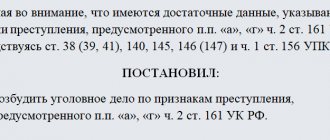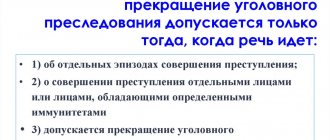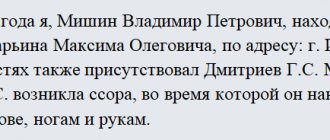Subject to appeal: how to effectively appeal an investigator’s decisions
From the point of view of the lawyer, chairman of the Moscow Bar Association “A&B” Gleb Plesovskikh, any decisions and actions of the investigator that violate the norms of the current legislation, the rights and legitimate interests of the applicant can and should be appealed.
In this case, not only the participants in the process have the right to appeal, but also other persons who are not victims, suspects or accused, but whose interests are significantly affected by the activities carried out by the investigator. However, for this mechanism to truly work, there are a number of important points that need to be taken into account during the appeal process.
First of all, at the preparatory stage, it is worth filing a petition, not a complaint. “Often, our colleagues substitute concepts: instead of filing a petition with a certain pleading part, for example, requiring the investigator to perform certain investigative actions, such as interrogating witnesses, requesting materials and documents, returning seized items and documents, they immediately send a complaint to the prosecutor, the head of the investigative agency or to the court,” says Gleb Plesovskikh.
However, this is nothing more than a waste of time, the lawyer warns. In practice, such a complaint is almost always subject to refusal. The reason is simple - without contacting the investigator with a request, the very subject of the appeal, that is, the refusal of the petition, will not exist.
In addition, it is extremely important to clearly articulate your requirements. Firstly, working with clear and understandable requirements is simply easier. Secondly, the decision will be made faster: the period for considering complaints from the parties about the action (inaction) and the decision of the investigator is three days, but can be extended up to 10 days subject to notification of the applicant, which, as a rule, happens.
“Many colleagues do not call their work anything at all: that is, they send a certain document that is not titled in any way and does not have references to any legal acts. This leads to the fact that such a document can be registered by the head of the investigative body or the prosecutor not as a complaint, but as an appeal. In this case, it falls under Federal Law No. 59-FZ “On the procedure for considering appeals from citizens of the Russian Federation”, the period for consideration of an appeal within the framework of which is no longer three and 10 days, but 30. You do not get what you want and are increasing the deadlines for yourself,” – explains Gleb Plesovskikh.
Thus, it is necessary to formulate your requirements as clearly as possible, refer to regulations and do not be afraid to call the document a complaint.
There are two ways to appeal an action (inaction) and a decision of an investigator: extrajudicial (124 Code of Criminal Procedure of the Russian Federation) and judicial (125 Code of Criminal Procedure of the Russian Federation). Extrajudicial appeal assumes that any actions (inaction) and decisions of the investigator can be appealed to his immediate superior, the head of the investigative body, a senior manager, as well as the prosecutor.
“The most striking example will be one of the most common decisions of the investigator - a decision to refuse to initiate a criminal case. It is logical to assume that by appealing such a decision to the investigator’s immediate supervisor, the chances of it being overturned are slim. This is a real practice, but it is unlikely that we can do anything about it. If we appeal this kind of decision to the prosecutor, the chances increase,” says Gleb Plesovskikh.
The lawyer reminds that the prosecutor's office must achieve certain indicators, including the number of canceled materials. This is exactly where lawyers can play: almost any decision of the investigator to refuse to initiate a case can be canceled due to a kind of “competition” between the prosecutor’s office and the investigation. So, the lawyer says, if you appeal to the prosecutor almost any decision of the investigator to refuse to initiate a criminal case, no matter how well-founded, motivated and beautifully written it may be, then it will most likely be cancelled.
However, Gleb Plesovskikh emphasizes, this does not mean that you should never appeal the investigator’s decision to his immediate supervisor. As an example, he cites a case from his own practice, when the applicant was repeatedly refused to initiate criminal proceedings. At first, investigators simply could not or did not want to find sufficient evidence. However, the applicant was a person with a difficult character, constantly filing complaints and making claims to the investigation, so each new inspector no longer took the case seriously. Then the applicant filed a request to familiarize himself with the inspection materials in full, referring to the departmental instructions of the investigative committee on the procedure for considering citizens' appeals. He was again refused - as the lecturer notes, this was done either due to the inexperience of the person who refused, or because of elementary workload. However, the refusal was not justified, and this gave the applicant a reason to complain to the immediate supervisor of the investigator who refused the application.
“It was a very smart move. First, he filed a petition, saw a procedural violation and pointed this out in his complaint to the head of the investigative agency. Of course, the manager did not expose himself, especially in front of senior management. So the applicant got what he wanted. Therefore, it is not always hopeless. If you see a clear violation of the law, regulations, or your rights, appeal the decision to your supervisor. At a minimum, this will provide an opportunity to go further, to the head of a higher investigative body, for example, the investigative department for a city or a federal subject,” the lawyer is convinced.
The judicial procedure for filing a complaint is an incredibly effective mechanism, explains Gleb Plesovskikh, and the investigator’s decision will be almost unambiguous, says the lawyer.
As the lecturer explains, usually already at the first court hearing the investigator comes with a decision to cancel his decision. The result was achieved, although it was canceled by the same leader.
The expert notes that there is still no universal recipe for choosing the type of appeal, so it would be wiser to combine appeal methods and contact several officials at the same time.
The effectiveness of a complaint depends not only on its content, but also on its format. The abundance of bold text, underlining and exclamation marks is considered a sign of unprofessionalism - and the attitude towards the complaint will be accordingly, the lawyer emphasizes. Free narration in the appeal is also not encouraged. The document should be structured into several paragraphs: each of them represents an argument or argument that breaks down the investigator’s position.
“Refer to regulations, but without fanaticism. I know some colleagues who approach this issue too responsibly and stuff all the “standards” in a row into a complaint or petition. Of course this needs to be done. If you call a document a complaint, then refer to those PC norms that govern filing a complaint. However, there is, of course, no need to go overboard and refer to regulations that have nothing to do with the document. This is also a sign of unprofessionalism,” explains the specialist.
Particular attention should be paid to the petition - and this part should be highlighted separately in the document. The expert recommends that after presenting your arguments, write “Please...” and state the requirements point by point:
- “Cancel the decision of such and such investigator as illegal and unfounded” - if we are talking about appealing the decision.
- “Return the items and documents seized during the search on such and such a date at such and such an address” - if the matter is in other actions.
- “I ask you to request for study the materials of the inspection of the criminal case in order to establish the presence of the above procedural violations” - in case of an appeal to a higher-ranking head of the investigative body or the prosecutor.
For more information about what to pay attention to when preparing and filing a complaint against the actions and decisions of an investigator, see the lecture “Let’s appeal the investigator’s decisions correctly and effectively” by Gleb Plesovskikh as part of the LawHacker project at the Legal Academy.
Image source: jcomp - www.freepik.com







